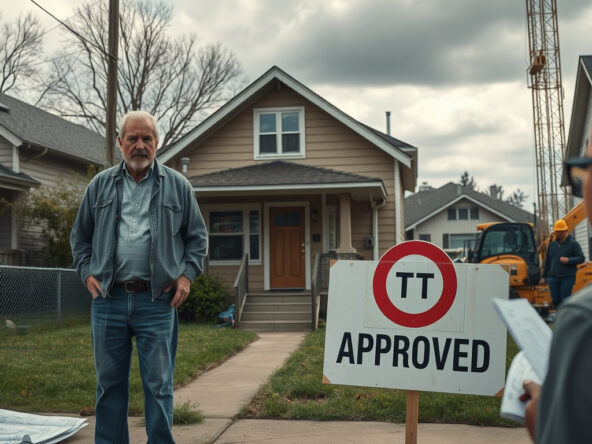Planning Approved for Conversion of House into Nine-Bedroom HMO to Support Homeless in Hastings
A local charity, propelled by severe social necessity, has yet secured planning approval which reassigns a residential structure into a nine-bedroom HMO; the charitable objective, reliant on dense dependency relations between shelter and support, interweaves property conversion with measures tailored for rough sleepers in Hastings.
Details of the Proposal
The approved proposal reassigns the house—its spatial configuration now restructured—into an off-the-street design, designated as an OTSO; beds, positioned as immediate relief for rough sleepers, conjoin with specialized support, each service dependent on the other in a network of housing and assistance. A management blueprint, incorporating 24-hour staffing, CCTV surveillance and a coordinated on-call security arrangement, structures operational oversight. Parking spaces, reserved solely for staff and visiting professionals, ensure that vehicle entanglement remains minimal for the residents.
Community Concerns and Responses
Concerns from local residents, articulated through observations of potential anti-social patterns and the alteration of a once-single-family home, register a dependency between neighbourhood identity and conversion impacts. One councillor, voicing both empathy for the charity’s intent and reservation regarding the site’s suitability, questions the alignment between social intervention and local ambience. Other councillors, in contrast, position stable accommodation as an urgent necessity, their collective trust in the charity’s operational schema reinforcing a managed equilibrium across the community; a planning committee condition mandates a discreet external sign, creating a direct link for neighbour communication.
Implications for Property Investors and HMO Considerations
This development, in which an HMO embodies more than standard rental function, exemplifies a complex interdependency between socially driven care and property conversion. Investors, encountering a model wherein supported accommodation interlocks with strict management protocols, must recognize how municipal policies and community contexts tightly bind investment risk with operational rigor. The conversion, predicated on robust service connection and local regulatory frameworks, offers investors a paradigm of asset redefinition punctuated by social necessity.
Summary
The planning approval, as a network of dependencies binding physical conversion and support services, finalizes the nine-bedroom HMO project intended to mitigate rough sleeping in Hastings. With extensive management provisions and regulated community linkage, the project instantiates a structural dependency that both reconfigures housing usage and underpins social support, inviting a reconsideration of property investment under tightly coupled regulatory and operational conditions.



